Mental Health and Marginalization: Schizophrenia and Solutions Report
VerifiedAdded on 2022/11/30
|6
|348
|89
Report
AI Summary
This report delves into the issue of mental health marginalization, focusing on schizophrenia and its impact on individuals. It explores the factors contributing to marginalization, including social discrimination, inadequate mental health services, and structural inequalities. The report highlights the challenges faced by individuals with schizophrenia in their daily lives, such as social exclusion, lack of support, and legal discrimination. It emphasizes the need for improved mental health services and legislative protection to address the marginalization of people with mental illness. The report also discusses the importance of community support and understanding to effectively manage mental disorders. The report concludes by emphasizing the importance of supportive measures in addressing the problem of marginalization and mental health disorders.
1 out of 6

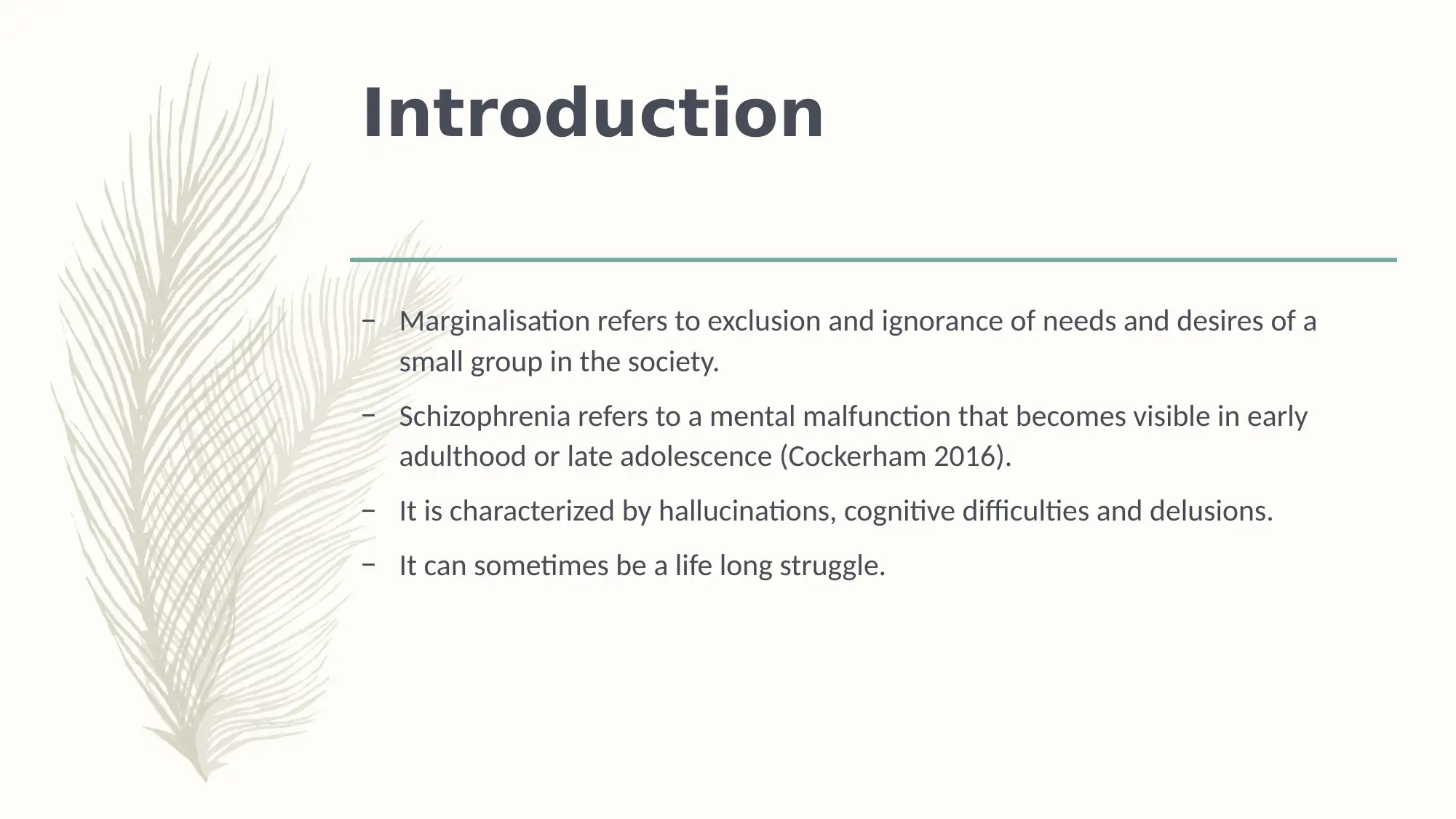
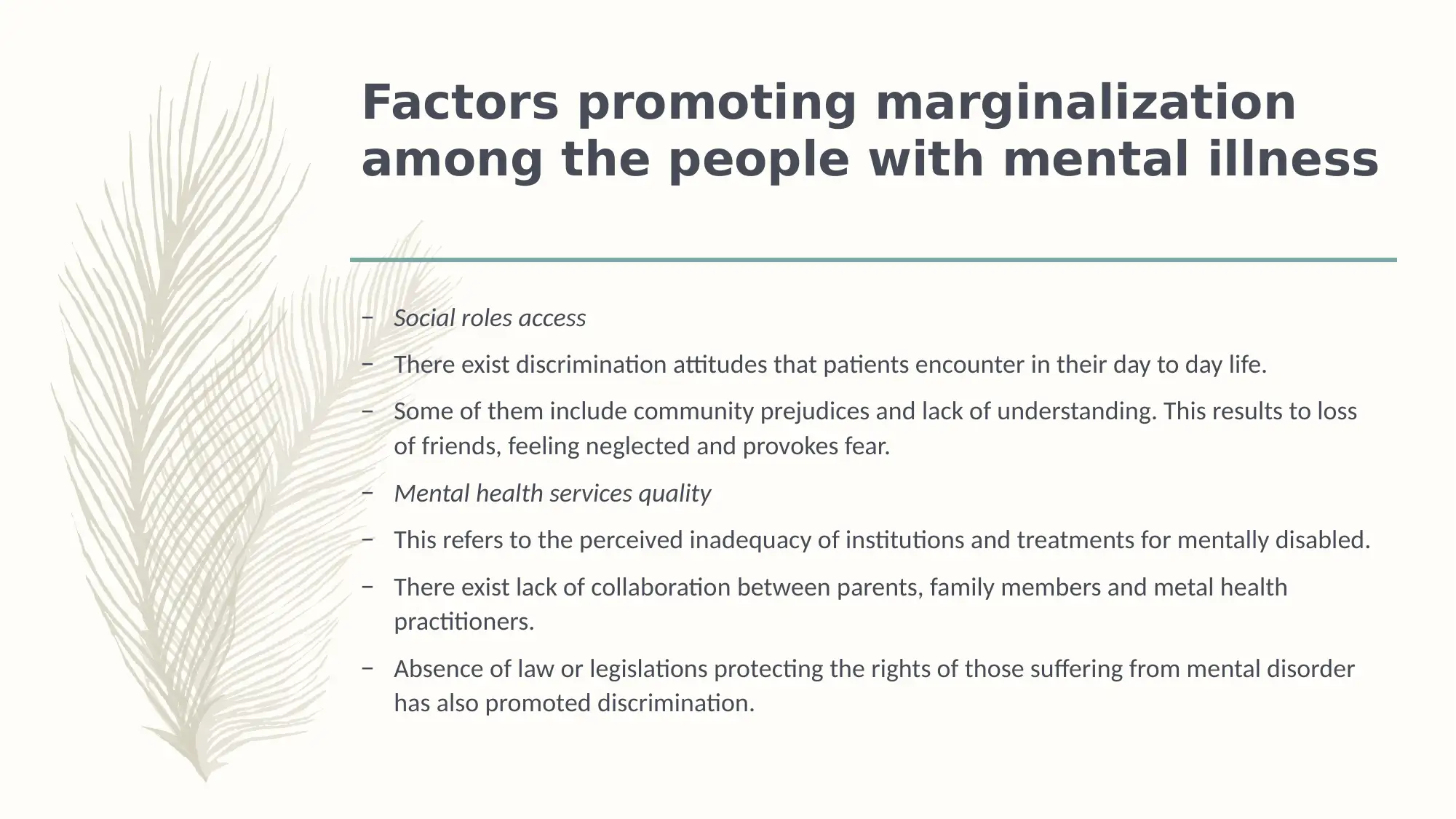

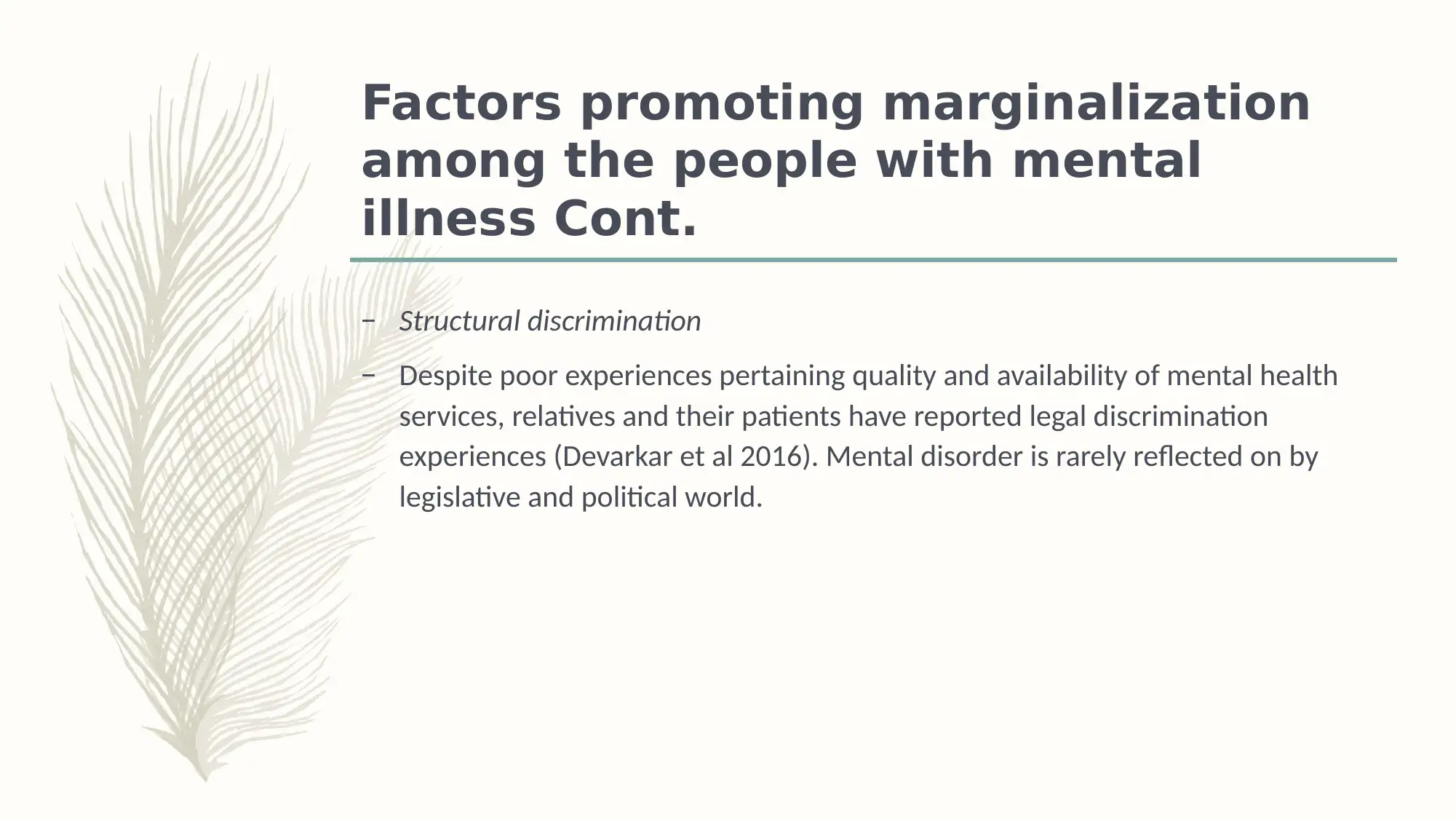
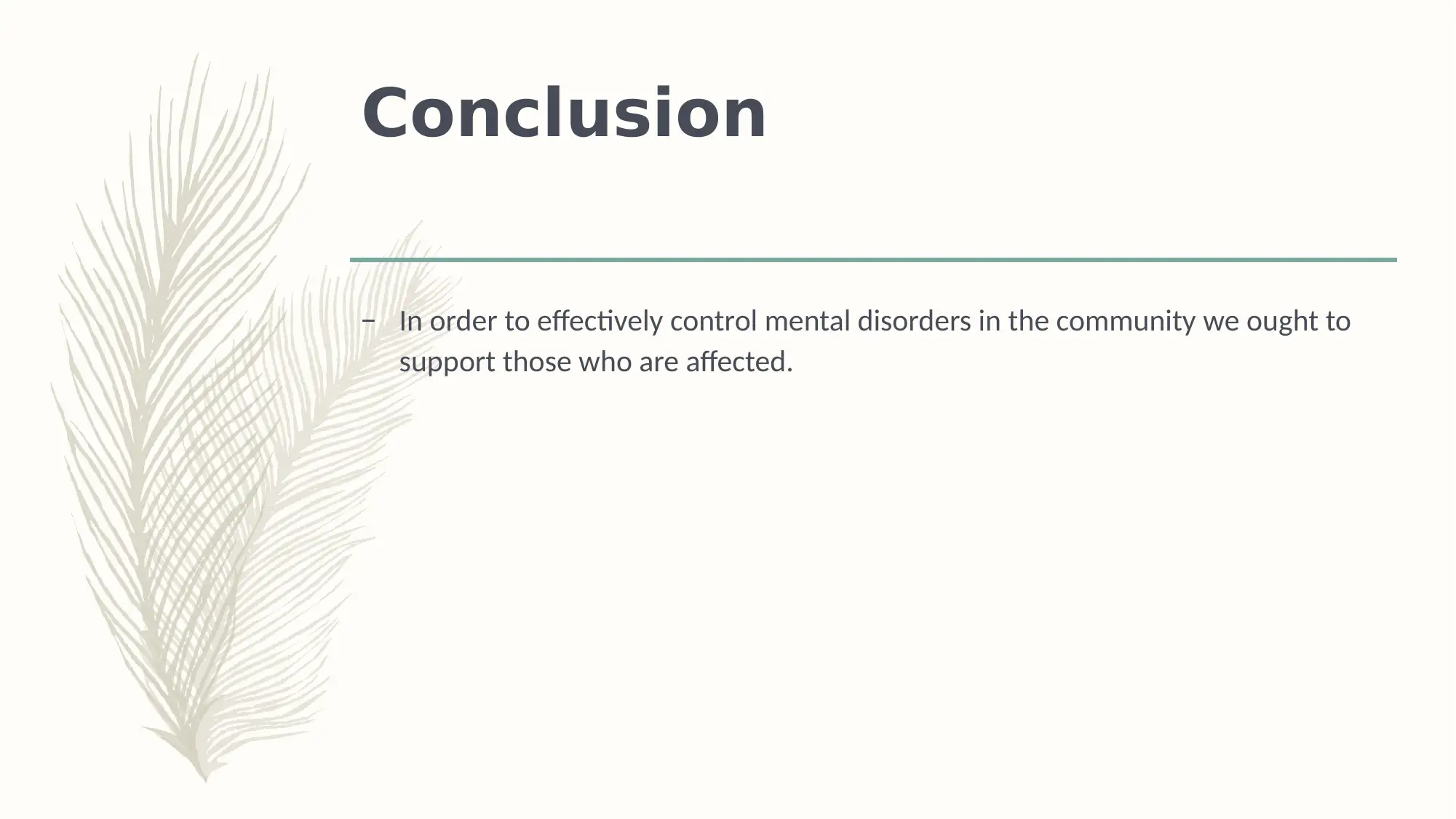
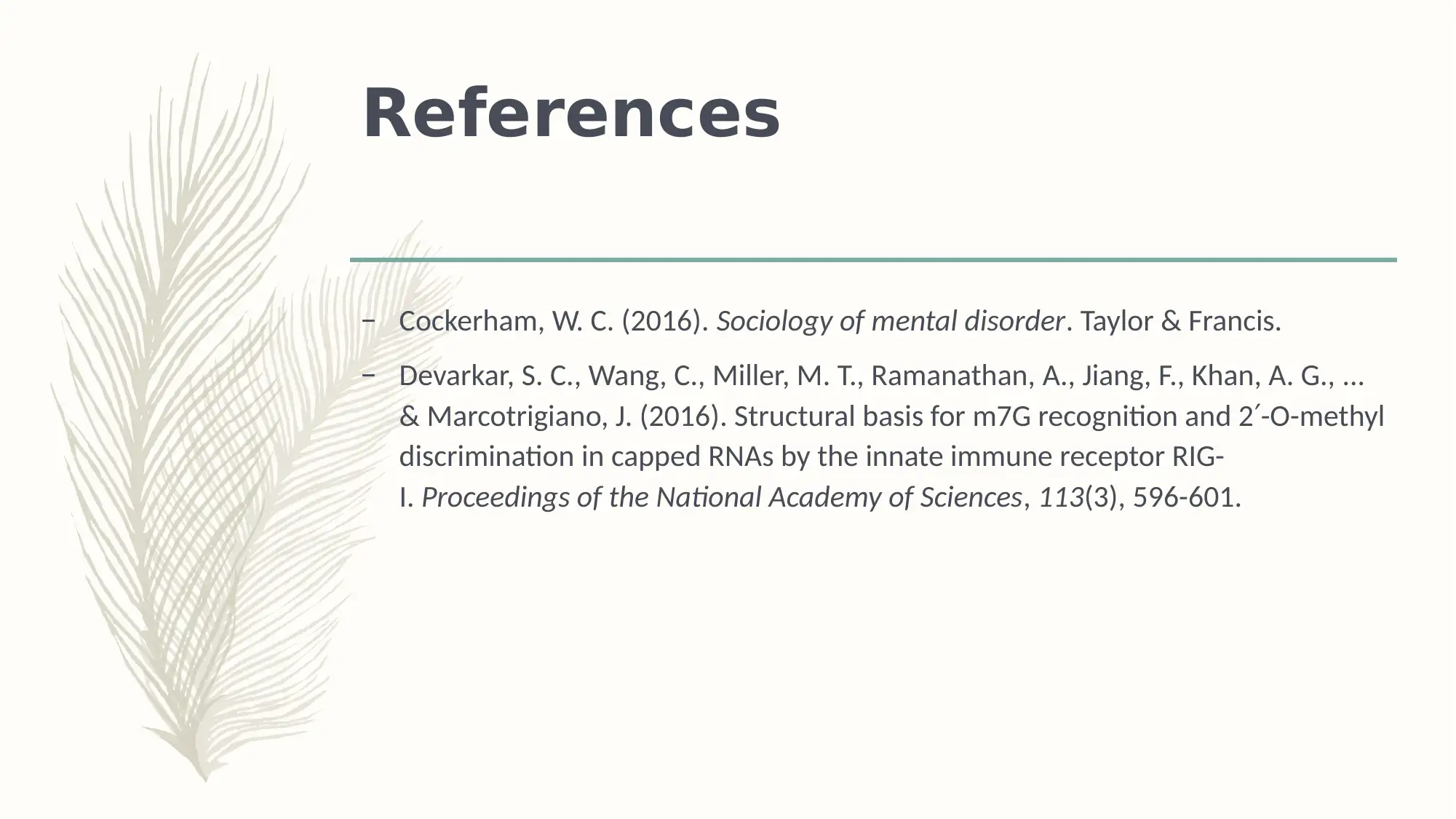





![[object Object]](/_next/static/media/star-bottom.7253800d.svg)